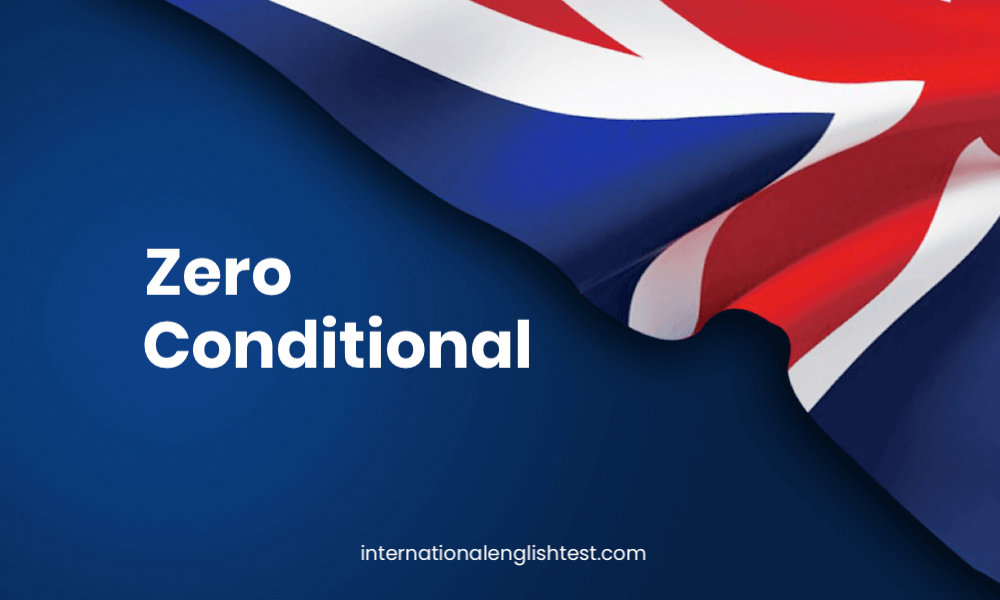Form of zero conditional sentences
In zero conditional sentences, the tense in both parts of the sentence is the simple present.
| If clause (condition) | Main clause (result) |
|---|---|
| If + simple present | simple present |
| If this thing happens | that thing happens. |
Like in all conditional sentences, the sequence of the clauses can be altered. When you switch the order of the clauses, you might need to reorganize the pronouns and make punctuation adjustments, but the overall meaning remains the same.
In zero conditional sentences, you have the option to substitute “if” with “when” because both convey universal truths. The meaning will remain unchanged.
What is your English level?
Find out your A1 A2 B1 B2 C1 C2 level of English with our online test and receive your English certificate.
Examples
- If you heat ice, it melts.
- Ice melts if you heat it.
- When you heat ice, it melts.
- Ice melts when you heat it.
- If it rains, the grass gets wet.
- The grass gets wet if it rains.
- When it rains, the grass gets wet.
- The grass gets wet when it rains.
Function of the zero conditional
The zero conditional is used to make statements about the real world, and often refers to general truths, such as scientific facts. In these sentences, the time is now or always and the situation is real and possible.
Examples
- If you freeze water, it becomes a solid.
- Plants die if they don’t get enough water.
- If my husband has a cold, I usually catch it.
- If public transport is efficient, people stop using their cars.
- If you mix red and blue, you get purple.
The zero conditional is also often used to give instructions, using the imperative in the main clause.
Examples
- If Bill phones, tell him to meet me at the cinema.
- Ask Pete if you’re not sure what to do.
- If you want to come, call me before 5:00.
- Meet me here if we get separated.
Are you C1 Advanced English?
Get your C1 Advanced English certificate now!
✓ Add your certificate to your resume
⭐ ⭐ ⭐ ⭐ ⭐
I am Nilay, an experienced English Language Assessment Director at the International English Test, where I have been working full-time since February 2020. I specialize in helping people worldwide validate their English proficiency through comprehensive assessments and certifications.
Before joining the International English Test, I worked as a self-employed English Language Assessment Consultant from January 2015 to December 2019. During this time, I assisted companies and individuals in improving their language skills, helping them achieve their academic and professional goals.
I hold a degree in Engineering and have also studied at Shafston International College in Australia. My educational background has equipped me with the tools to make a meaningful impact in the field of English language learning. Additionally, I enjoy sharing my expertise through articles that explore effective teaching methods and language assessment strategies, contributing to the International English Test and the broader assessment community.





